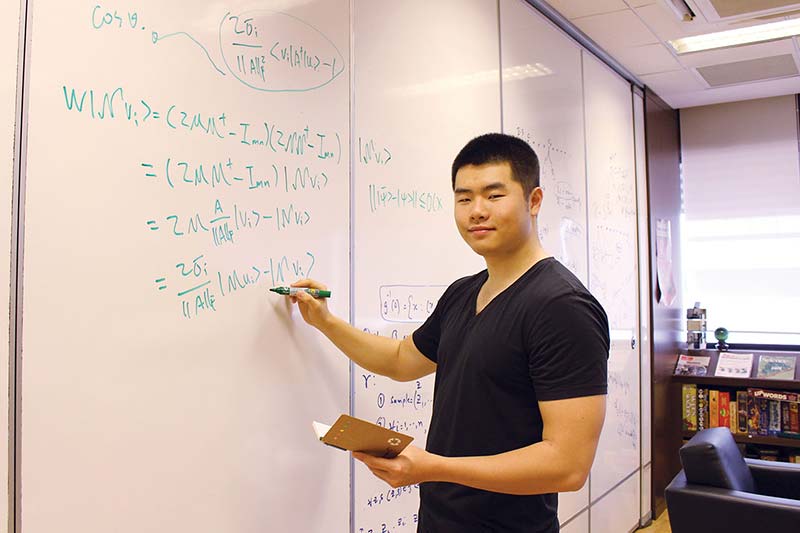
Researchers at the Centre for Quantum Technologies (CQT) in Singapore have proposed
a new algorithm for solving systems of linear equations that is faster than
both the classical and the previous quantum versions, and without restrictions
on the kind of data it works for.
Systems of linear equations are involved in problems ranging
from commodities pricing to social networks and chemical structures.
A linear system algorithm works on a large matrix of data.
For example, for a trader trying to predict the future price of goods, the
matrix may capture historical price movement data, as well as data about
features that could be influencing those prices, such as currency exchange
rates. The algorithm calculates how strongly each feature is correlated with
another by ‘inverting’ the matrix. This information can then be used to
extrapolate into the future.
The analysis of the matrix involves significant computation.
It becomes hard for classical computers, once the size goes beyond say 10,000
by 10,000, because the number of computational steps goes up rapidly with the
number of elements in the matrix. Each doubling of the matrix size increases
the length of the calculation eight-fold.
The first
quantum linear system algorithm was proposed in 2009 by a different group
of researchers and it kick-started research into quantum forms of machine
learning, or artificial intelligence. As this article
from Nature explains, a
quantum computer can compress the information and perform calculations on
select features extracted from the data and mapped onto quantum bits, or qubits,
as opposed to the tedious number crunching required in classical computing. According to the article: “Quantum
machine learning takes the results of algebraic manipulations and puts them to
good use. Data can be split into groups — a task that is at the core of
handwriting- and speech-recognition software — or can be searched for patterns.
Massive amounts of information could therefore be manipulated with a relatively
small number of qubits.”
The 2009 algorithm could handle bigger matrices better, offering
an exponential advantage over the best classical algorithms, but only if the
data in them is what’s known as ‘sparse’, as in most of the elements in the matrix
are zero. In these cases, there are limited relationships among the elements,
which is often not true of real-world data.
The new algorithm is faster and does not have restrictions
on the type of data. As a rough guide, for a 10,000 square matrix, the classical
algorithm would take on the order of a trillion computational steps, the first
quantum algorithm some 10,000s of steps and the new quantum algorithm just 100s
of steps. The algorithm relies on a technique known as quantum singular value
estimation.
CQT's Jansen (Zhikuan) Zhao, Anupam Prakash and their
collaborator, Leonard Wossnig, published their proposed ‘quantum linear system
algorithm’ in the 2
February issue of Physical Review Letters.
A few proof-of-principle demonstrations of the earlier
quantum linear system algorithm have been conducted on small-scale quantum
computers. Jansen and his colleagues hope to work with an experimental group to
run a proof-of-principle demonstration of their algorithm.
They also want to do a full analysis of the effort required
to implement the algorithm, checking what overhead costs there may be.
Bigger quantum computers will be required to show a real advantage
over the classical algorithms. Jansen said, “We’re maybe looking at three to
five years in the future when we can actually use the hardware built by the
experimentalists to do meaningful quantum computation with application in
artificial intelligence.”
















